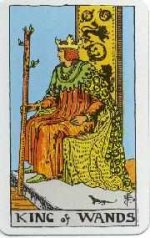Teheuti
When I did my Tarot and Emotions Research Project several years ago it became clear that the RWS deck was clearly biased towards the pleasurable emotions. Since most tarot readers would like to ameliorate situations, and people are better able to meet stress and challenges if they have a positive outlook, this has worked in our favor, but a few have wondered whether it would be better to have a deck that is more evenly featured.
So, while reading Daniel Goleman's new book _Social Intelligence_, I was struck by the following quotes from Harvard's Jerome Kagan, that sum up a great deal of recent research:
"Although humans inherit a biological bias that permits them to feel anger, jealousy, selfishness and envy, and to be rude, aggressive or violent, they inherit an even stronger biological bias for kindness, compassion, cooperation, love and nurture—especially towards those in need. . . . This inbuilt ethical sense is a biological feature of our species."
Perhaps the RWS is not biased after all, but actually reflects human proclivities as they are. Any thoughts or comments?
Mary
So, while reading Daniel Goleman's new book _Social Intelligence_, I was struck by the following quotes from Harvard's Jerome Kagan, that sum up a great deal of recent research:
"Although humans inherit a biological bias that permits them to feel anger, jealousy, selfishness and envy, and to be rude, aggressive or violent, they inherit an even stronger biological bias for kindness, compassion, cooperation, love and nurture—especially towards those in need. . . . This inbuilt ethical sense is a biological feature of our species."
Perhaps the RWS is not biased after all, but actually reflects human proclivities as they are. Any thoughts or comments?
Mary



